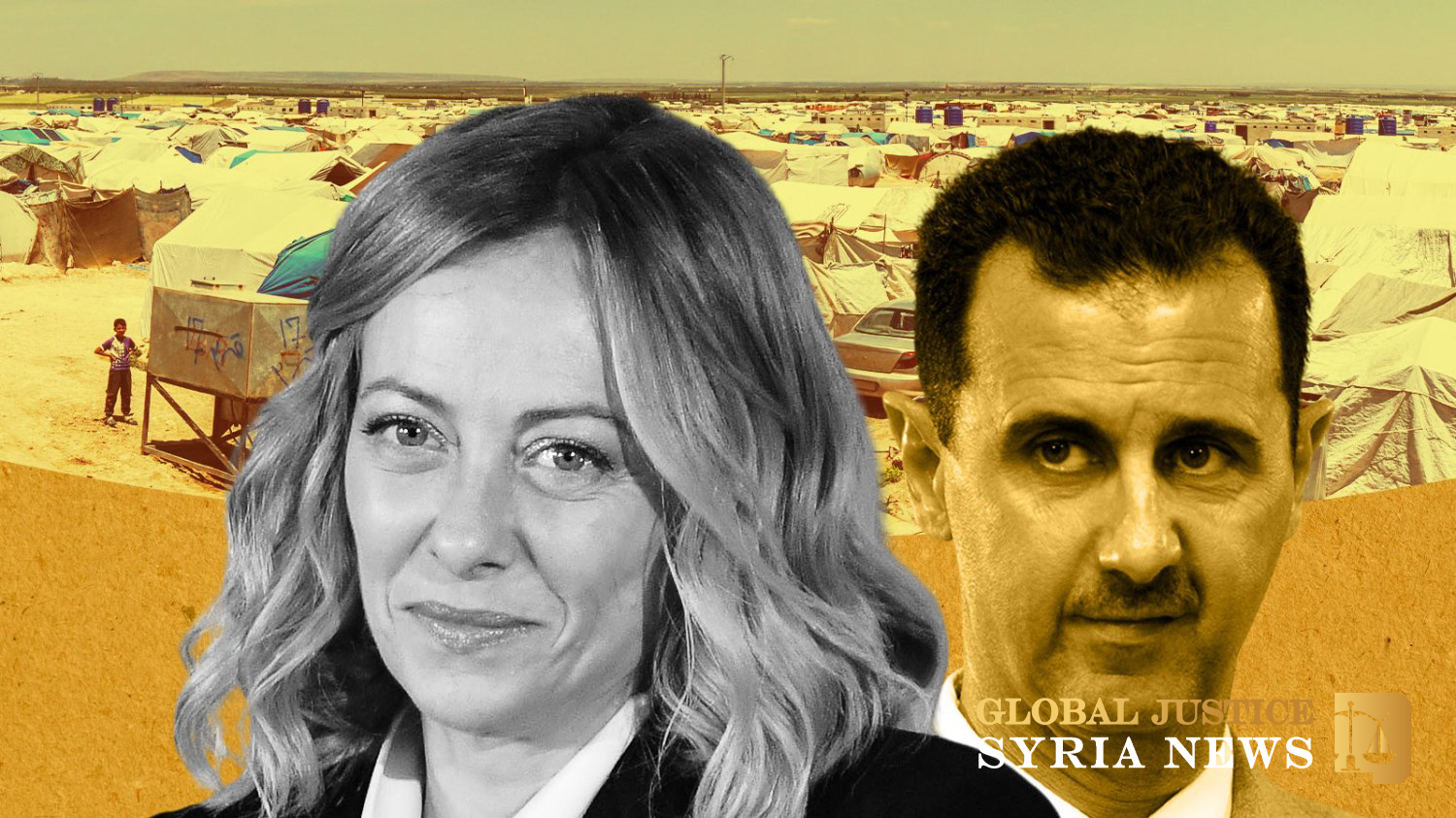This article was originally published by The Times of London on October 16, 2024. You can read the original version here.
Giorgia Meloni, the Italian prime minister who forced the EU to toughen its asylum policies, is now urging allies to reset relations with the Assad regime in Syria to stop illegal migration into Europe.
Following an EU summit in Brussels dominated by the populist leader’s victories on Europe’s approach to migration, Meloni will travel to Lebanon on Friday in what is ostensibly a visit to support United Nations peacekeepers, who include 1,000 Italian troops.
However, migration will be on the agenda when she holds talks with regional leaders. There are growing concerns in Europe about a new refugee crisis following the displacement of more than a million people in recent weeks because of Israel’s attacks on the Lebanese militant group, Hezbollah.
“Rising tensions and military escalation have also aggravated the refugee crisis in Syria, Jordan and other countries in the region,” Meloni told the Italian senate this week. “It is crucial to address this emergency, which is getting worse and worse and which deserves an even more determined commitment from Europe.”
She said the EU should review its “strategy for Syria and work with all actors to create the conditions for Syrian refugees to return home voluntarily, safely and sustainably”.
The EU severed diplomatic relations with the Assad regime in May 2011 after its bloody repression of protesters tipped the country into civil war. He was accused of using chemical weapons against his own people a year later. More than 14 million Syrians have been forced to flee their homes over the past 13 years, the UN estimates, with at least a million arriving in Europe.
In July, Italy, Austria, Croatia, the Czech Republic, Cyprus, Greece, Slovenia and Slovakia asked the EU to renew diplomatic links with Syria. Meloni, breaking ranks with other EU and G7 countries, appointed an ambassador to Damascus.
The Italian nationalist sees her approach to Syria and a “readmission” deal with Assad as laying the groundwork for Damascus to take back its people who fled to Europe. “We must invest in early recovery, so that refugees who decide to return find conditions that allow them to reintegrate into Syria,” she said.
Diplomats said that Meloni was convinced that the EU would follow her lead following controversial recent agreements with Libya, Tunisia and Egypt on migration. “She has a sense of mission and the tide has turned her way,” said one official.
Proof of her influence is growing as the EU moves to set up deportation camps outside its borders and to consider other tough migration policies that were, before Meloni entered office, unthinkable. On Thursday she will host, alongside Dutch and Danish leaders, talks on migration in the wings of a Brussels summit that will attract Ursula von der Leyen, the president of the European Commission.

Von der Leyen shares Meloni’s fears that the conflict in the Middle East is pushing people into Syria with the threat of spillover to Europe’s shores. “More than one million people have been displaced in the last few weeks, with significant numbers moving into Syria, and with a clear potential for a further international displacement,” she wrote to EU leaders this week.
The EU held talks with Gulf states, including Saudi Arabia on Wednesday, which included discussion on “the need to create secure conditions for the safe, dignified, and voluntary return of Syrian refugees”. A diplomat said: “The new Middle East conflict is forcing people to hold their noses when it comes to Syria.”
The Middle East intensified on Wednesday with the first Israeli airstrikes on Beirut in five days hitting a “strategic weapons” dump underground. In the southern Lebanese city of Nabatieh, six people were killed, including the mayor, when a strike hit what was reported to have been a meeting of the council’s crisis co-ordination team.



















